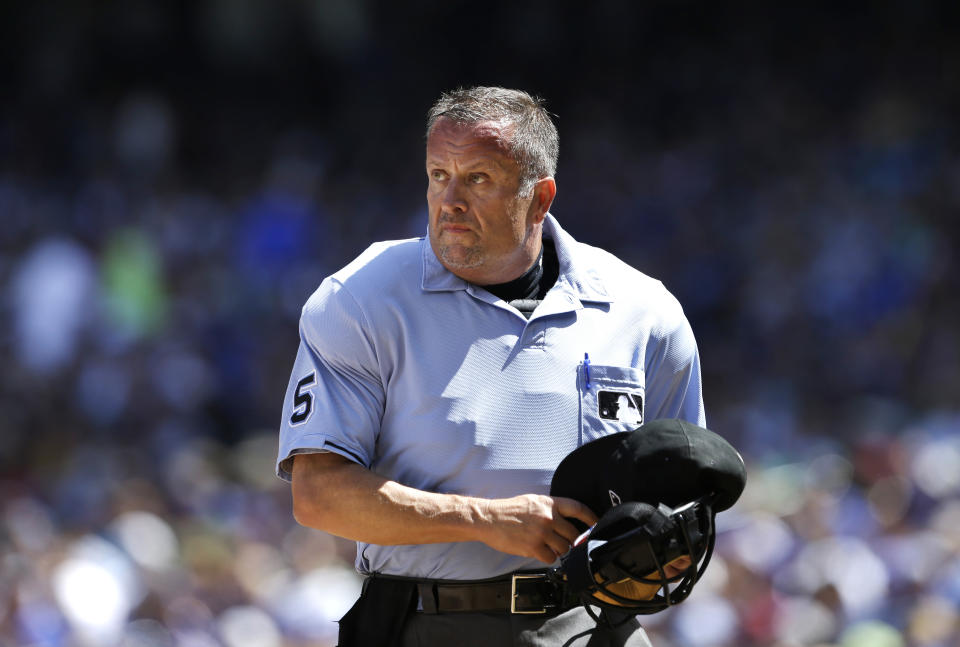Umpire Dale Scott retires due to concussion risk

Dale Scott, a major league umpire since 1985, has decided to retire from baseball at the age of 58. And it wasn’t the heavy travel schedule or family concerns that caused him to make this decision. Scott told the Associated Press that it was one thing: concussions.
Scott suffered a concussion on April 14, 2017 when he was behind the plate calling a game between the Baltimore Orioles and Toronto Blue Jays. He was hit in the mask with a foul tip, was down on the ground for several minutes, and was carried off the field on a stretcher.
The injury caused him to miss the entire 2017 season, and opened his eyes to the damage that his brain had already endured, and the further damage he could do if he continued umpiring. That concussion was his second in just nine months, and his fourth in the last five years. According to the Associated Press, Scott asked his doctors about the long-term effects, and the answer they gave confirmed his decision to retire.
“They said, ‘We just don’t know,'” Scott said. “But they told me that the more times you get hit, the more probability that you’ll have issues.”
For all the time that umpires spend behind the plate as the human being between the catcher and the backstop, umpire concussions aren’t talked about very often. But it’s a very real risk, just as large as the risk that catchers face. While umpires aren’t necessarily at risk for concussions caused by home plate collisions, they do get constantly whanged in the face and head by deflected baseballs.
MLB has gotten serious (or at least more serious than they were before) about concussions in the sport, introducing the seven-day concussion DL and additional protocols in 2011. And there have been some advances made in concussion protection: a mask from the company Force3 Pro Gear, which is co-owned by several MLB catchers, has been engineered with springs to help absorb most of the shock from a hit to the head or mask.
Despite these advances, Scott told the Associated Press that the decision to retire was an easy one. At 58, he’d worked 3,897 games, 91 postseason games, and spent over half of his career as a crew chief. He’d accomplished everything that an umpire could hope for. Over the summer — his first free one in 26 years — he went to concerts, watched fireworks and spent more time with his husband. Between doing that or continuing to put yourself at risk for brain damage, it’s hard to blame Scott for making the choice he did.
Umpires don’t typically leave a visible, lasting legacy on the game, but Dale Scott will. In 2014, Scott was the first umpire to publicly come out as gay in the history of baseball, and he did it while he was still actively working in the sport. And while his coming out was monumental, the best part is that after it happened, it stopped being a story. Scott wasn’t treated any differently by anyone, but now he could live his life as himself instead of as the person everyone thought he should be.
Scott got to spend the last few years of his career living freely, and now he’ll get to do that in retirement, leaving the game before it seriously jeopardized his health.
– – – – – –
Liz Roscher is a writer for Big League Stew on Yahoo Sports. Have a tip? Email her at lizroscher@yahoo.com or follow her on twitter! Follow @lizroscher
More from Yahoo Sports:
• Dan Wetzel: Lithuanian move isn’t exactly Big Baller
• Charles Barkley: Alabamians ‘brainwashed’ for Roy Moore
• With Hall of Fame nod, hurler breaks down in tears
• Report: Faulk, McNabb named in sexual harassment suit


